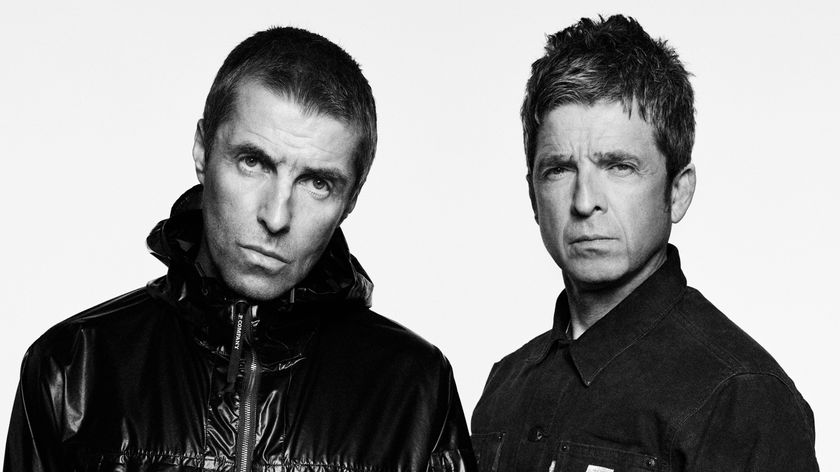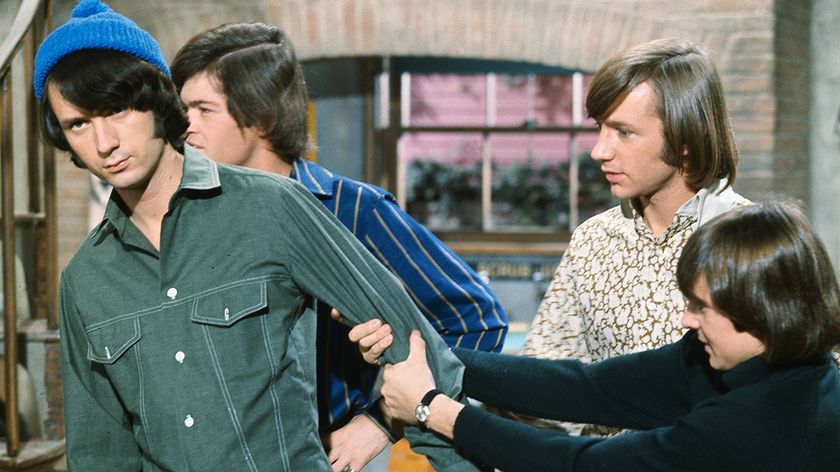
Session giant Waddy Wachtel looks back on 11 career-defining records
“There was an incredible spirit in the air," says guitarist Waddy Wachtel, looking back on a golden period of time, during the '70s and early '80s, when he and an elite, close-knit group of Los Angeles-based musicians (including drummer Russ Kunkel, bassist Leland Sklar, keyboardist Craig Doerge and guitarist Danny Kortchmar) helped define the sound and mood of the era on a staggering array of hits by the likes of Jackson Browne, Warren Zevon, Linda Ronstadt, James Taylor, Stevie Nicks and others.
"You would go to the studios and be with people who you loved, who you dug," he says. "I’d be doing Warren Zevon’s record, and Don Henley and Glenn Frey would be there having a drink. And if you weren’t working, you were hanging out with them. ‘Oh, you need a background vocal? I’ll do it.’ ‘You need some guitar on that? Let me see what I can do.’ Everybody was helping each other. It was sensational. The creative flow was unstoppable."
Wachtel came to Los Angeles from the East Coast in the late '60s, and after a few years of barely scraping by while trying to break into the inner circle of new-breed studio players who would gradually become as dominant a force as LA's famed "Wrecking Crew," he finally got his big break when producer Nick Venet, who had used the guitarist on a series of acoustic, folk-based gigs, told him, "Waddy, it’s time for you to move on."
"My heart sank," recalls Wachtel, laughing. "'What’s wrong?'" I said. "'What did I do?' And he said, ‘No, no, no. You’re not fired. You’re better than what we’re doing here. It’s time for you to move up.'" Venet invited Wachtel to play electric slide on a session, which then led to the guitarist getting a call to perform on a Tim Curry record, and on that date he not only played with Kunkel and Sklar, whom he had already worked with previously, but he finally got a chance to meet and trade licks with Kortchmar. Before long, Wachtel's dance card was filled, and he often found himself in the studio with the same core group: Kunkel, Sklar, Kortchmar and Doerge.
The three-hour session recording blocks of the '60s gave way to extended periods in the studio as producers and artists crafted whole albums, not songs, affording Wachtel the opportunity to explore the nuances of each cut, including the emotional messages behind the numbers.
“I would look for the spaces in the music," Wachtel says. "It’s all give and take. My life is counterpoint. That’s what I’ve built my world around: Here’s the singer, here’s the song, and here’s a spot where I can add something that matters. The spot where the singer takes a breath, that’s where I add a little burst to counter the melody. You have to use your ears and listen to the song to get that give and take. Tiny moments add up."
For most dates, Wachtel relied on a 1960 sunburst Les Paul that he purchased from Stephen Stills. "That's the guitar you’ve heard on pretty much all records," he says. "At some point, I started using Fenders, but for most of it, for anything electric, the Les Paul was always with me." Complementing his 'burst was a Music Man 210 HD amplifier, which Wachtel describes as "beautiful sounding, not too loud for a studio room. That guitar and amp were a perfect match; notes would just fly out and sing.”
By the mid-'80s, tastes had changed, new bands and players invaded the scene, and the studio musicians, who not too long ago were booked round the clock, began to find new opportunities for employment, often as key touring figures for the stars they'd recorded with. Wachtel, who would hook up with Keith Richards and become one of the rock legend's X-Pensve Winos, still records and tours with artists regularly, but he regards the glory days of the '70s with a hindsight view.
“When we were doing it, all the focus was on the work," he says. "It never occurred to me, like, ‘Gee, everybody is so creative and is doing all of these amazing songs.’ That only comes with years. But it was an incredible period where you had Jackson Browne, Warren Zevon, Little Feat, J.D. Souther, Linda Ronstadt, James Taylor – all the best people were blossoming at the same time. Los Angeles was on fire."
The tale of Wachtel and his session comrades will soon be the subject of an upcoming documentary, King Of The Sidemen, the title of which causes the guitarist to squirm a bit. "I ain't no king," he asserts. "Everybody was doing great stuff." On the following pages, Wachtel looks back on 11 of his most notable recordings.
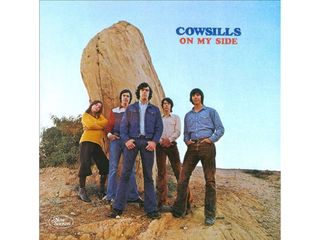
The Cowsills - On My Side (1971)
“I wrote On My Side with Judy Pulver, who was in my band. It wasn’t written for The Cowsills, but once I broke my band up, The Cowsills asked me if they could do the song, and I said, ‘No problem.’
“This is a long story: I had made it out to Los Angeles by this time. What happened was, I went up to Newport, Rhode Island, with bands I had back then – we were these hotshot New Yorkers – and somebody said to me, ‘Have you heard The Cowsills?’
“’The Cowsills?’ What the hell is that? Is that even a word?’ So he told me they were this group, and we went to see them. Originally, it was just the four boys, and they were incredible. They weren’t even old enough to be in the places they were playing, but man, they really knew what they were doing.
“Then I met their father, Bud, who was this alcoholic motherfucker. I didn’t even know who he was at first – I was playing at a club, and I had him thrown out. Somebody told me, ‘That’s The Cowsills’ father,’ and I was like, ‘What? You’re kidding!’ And he wanted to manage me, too. I really didn’t like him at all. I wanted nothing to do with him.
“Finally, one day Bud said to me, ‘If I get a million dollars, will you come sign with me?’ And I said, ‘Yeah, sure I will.’ Well, they put Mom and Sue in the band, had a hit record, and I got a call that Bud was coming to see me. I was in Vermont with my band, and Bud drove up, heard the band and thought that we sounded good. So he said, ‘Well, Waddy, I got the million now. You wanna come with me?’ And I said, ‘Yeah. Get me the fuck out of here.’
“It was an insane time. We went down to New York, and we were all living together, the whole band. And then one day, Bud said that he was thinking of moving his operation to Los Angeles. He asked me if I wanted to go with him, and I said, ‘Definitely.’ I couldn’t get work in New York – it was impossible.
“We went to California, and Bud said, ‘You’re going to produce the guys.’ I was like, ‘Produce? What’s that mean?’ [Laughs] We did this arrangement of a song, Silver Threads And Golden Needles. I did this record of it with the kids, which didn’t really do much for them. Then we did On My Side, and by then things were really falling apart.
“After a while I realized that, not only was the band going nowhere, but Bud was robbing me, too. That’s when I told him, ‘I want my publishing back, and I want you out of my life. You’re fucking out of here.’ But that’s how I got to Los Angeles and got my name on a record.”
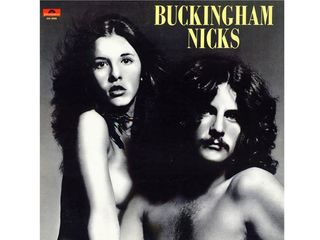
Buckingham Nicks - Buckingham Nicks (1973)
“I was doing some dates with producer Keith Olsen. One day he said to me, ‘Waddy, I’m bringing this couple down from San Francisco. You gotta meet them, and you gotta play with them. They’re great singers, great songwriters. The guy’s a really good guitar player, but he needs to play with someone like you.’
“That was Keith’s intention, bringing me into it. I met Stevie and Lindsey, we dug each other, and we went off and did the record. Moving to LA was a bit of a shock to them. Lindsey saw me as a compassionate person, and we got along. He was a great fingerpicker – he still is, he’s an amazing fingerpicker! – and me being a flatpicker, we had a lot to teach each other and a lot to learn from each other.
“I would say that, at the time, Lindsey needed to learn how to let somebody else be there with him. In Keith Olsen’s mind, I was the right guy for that because I knew about the give and take. I wouldn’t overstep the perimeter, so to speak.”
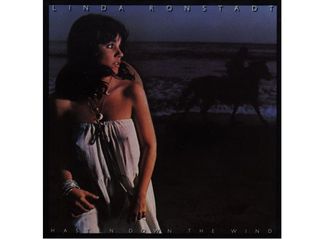
Linda Ronstadt - Hasten Down The Wind (1976)
“My introduction into Linda’s world. Peter Asher had seen me play with Carole King at UCLA. He wanted me to go out on the road with Linda, but first he wanted me to play on her record.
“A lot of times of times when you’re cutting a record, especially when you’re overdubbing, you want to be in the same room with the producer; you don’t want to be in some other room and going through the talkback mic and everything; you want to hear it together and have some interaction.
“So I’m in there with Peter, and we’re working on a song, and while I’m playing I got the distinct feeling that there was somebody else in the room. I looked under the console, and there was Linda, covered up in a blanket. ‘Oh, hi!’ she said. It was so cute.
“Working with Peter was interesting. He’s very focused on his artists, and he was very focused on the band that came with Linda – Andrew Gold, Kenny Edwards, Mike Botts, all three of them rest in peace. Also there was Brock Walsh and Dan Dugmore – I had a great guitar relationship with Dan.
"I remember, before I started playing with Linda, I went by the studio to drop something off to Kenny. J.D. Souther was there – it was his record they were doing – and when he saw me, he was like, ‘Waddy! What are you doing here? Hey, you gotta play on this record.’
“I said that I’d love to, but then I saw Peter Asher kind of biting his lip and looking at me like, ‘Who the fuck is this? Who’s this outsider?’ Being British, he’s not the most touchy-feely person, at least he wasn’t at that time. So he kind of begrudgingly said, ‘OK, he can play on it.’
“The song was Simple Man, Simple Dream. I’d never heard it before, but I set up my guitar with my volume pedal and my amp, and as soon as I heard J.D. sing that opening line, I knew what to do. My entrance is this little volume pedal sort of steel lick. I knew it would work. When I played it, I looked at Peter, who jumped up like, ‘Whoa! What was that?’ Right away, things got warmer and he let me into the circle, and we’ve been dear, dear friends since then.
“Actually, Peter was the guy who really showed me how easy it is to be nice to people in the studio and still get what you want out of them. His approach wasn’t regimented, like things were in the Wrecking Crew days. He was casual in terms of getting to the red light being on; once the red light was on, everybody had to be serious and get to work. But he was loose and very warm. He made you feel good about being there, which is such an important part of producing a record.”
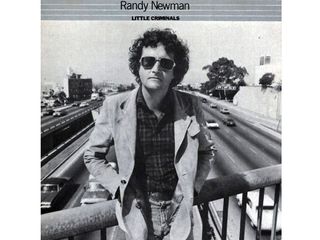
Randy Newman - Little Criminals (1977)
“Incredible. I got the call because I knew his producers, Lenny Waronker and Russ Titelman. I showed up, and the first song was Short People. I couldn’t believe it – and there were so many incredible songs.
“It was an overdub situation – the tracks were already cut. I sat down in the booth next to Randy, and on Short People I just started doing my thing, adding the low, distorted guitar. In the chorus, I’m playing slide, matching it against what everybody else had done.
“At first, Randy was like, ‘Slide? What are you gonna do, some Hawaiian shit?’ But then he heard what I did, and he loved it. He said, ‘It sounds like a voice.’ After that, I kept getting called back to do more.”

Warren Zevon - Excitable Boy (1978)
“I had done an interview in England when I was on the road with Linda Ronstadt, and the journalist asked me what I thought of Jackson Browne’s production on the first Warren Zevon record. I said, ‘Oh, I think he had his hands too full and didn’t really know what he was getting himself into.’
“The day I got home, the phone rang and it was Jackson. He had never called me before. I told him that I just walked in the door from the tour, and he goes, ‘Yeah, I know. I read your interview – you know, the one where you said I had my hands full and didn’t know what I was doing. You’re absolutely right, so that’s why I’m calling. You’re gonna co-produce the next record.’
“I said, ‘Wait a minute. You don’t even know me.’ He said, ‘Not only do I know you, but I know where I stand with you. More important, I need you. Warren won’t listen to me anymore, but he’ll listen to you.’ Then he added, ‘But believe me, that’ll change after this record.’ Which it did – he was right about that.
“Werewolves Of London came about after Phil Everly called Warren and said, ‘Hey, there’s this old English horror movie called Werewolves Of London. You should write a song with that title.’ I got together with Warren at my friend Roy Marinell’s house. Warren told me about the title, and I was like, ‘Hey, I just got back from London.’ And what happened was, Roy had this guitar lick that we couldn’t put to anything. We tried to write songs with it, but nothing worked. A whole year of this fucking lick. But when Warren told me the title, I said, ‘Hey, Roy, play that lick of yours!’ And having just gotten back from London, I had all of these images and words in my head. In one pass, I spit out the first verse.
“Warren loved it. ‘Do it just like that,’ he said. And I went, ‘Why don’t we do the ‘Ahh-ooo – werewolves of London.’ And he goes, ‘That’s great. I love it.’ And I said, ‘All right, well, you finish it. I gotta go to work.’
“They finished up the song, masterfully, all except for the last line. The music had already been recorded, and I got a call from Warren – I was on the road at the time – and he said that we needed one more line. I was like, ‘OK, whatever you say.’ And then he said, ‘I’ve got it – I saw a werewolf drinking a pina colada at Trader Vic’s. His hair was perfect.’ I said, ‘That’s it, we’re done!’
“Funnily enough, I didn’t think that the song was a hit. When the record company picked it, Warren and I went fucking ballistic. We were so wrong, and they were so right. We were so proud of the other songs on the record. To us, Werewolves Of London was the dirty joke. We had no idea what we really had.”
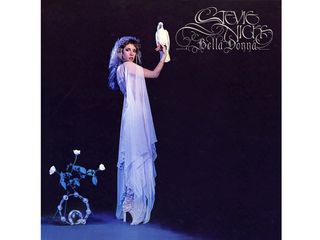
Stevie Nicks - Bella Donna (1981)
“Russ Kunkel and I would meet at 10am and do Rita Coolidge, and then there would be another session, and Stevie was our third session of the day. She and I hadn’t seen each other in years, but she wanted me there. I was thrilled. That’s where I met Jimmy Iovine and Shelly Yakus, a well as the basis of her first touring band, Benmont Tench and Roy Bittan.
“It was magic. Edge Of Seventeen was an explosive thing in the studio. They were patterning it off of a song that had an echo on it, but I don’t use effects. I wasn’t going to use a fucking echo. They were like, ‘What?’ But I said, ‘I’ll show you. Let me just do my thing.’ I used the same Les Paul, the same little amp, and when everybody heard it, they went nuts. It had a tense sound that wasn’t there with the echo. It kept working and working.
“It was extraordinary to see Stevie become this rock ‘n’ roller, because when I met her she was like this little folk girl. We always had this thing, like, ‘I like you, you like me, but I know you don’t care about what I do.’ But one night I said to her, after we did the first show of her tour, ‘Stevie, you really impressed me. Standing on stage with you, you are a rock ‘n’ roller, my girl.’ She thought I was kidding. ‘Get outta here!’ she said. But I was totally serious. She’s incredible.”

James Taylor - Dad Loves His Work (1981)
“I think I’m on all of the tunes. I co-wrote Her Town Too with James and J.D. The three of us decided to get together and write one night. We went to J.D.’s house. Actually, J.D. called me and asked me to come because he was with James, but he didn’t really know him; he didn’t know what to do with him.
“I got there, and we all got a nice head full of spirits. [Laughs] And we’re plunking at guitars here and there, just doing out thing. Suddenly, James kind of fell on the main riff of the tune, and I looked at J.D. and said, ‘Get a cassette player. This is it.’ So, while J.D. is off looking for a cassette player, I’m sitting there just trying to memorize everything that James is doing, ‘cause of course, the minute you turn a recorder on, everybody is like, ‘What did I do?’
“The music came first, and then we wrote the lyrics. My gig on that was, I was the one who kept the boat in a forward direction. I also contributed what I think is one of the better lines of the tune, and James has always complimented me on it. The song is basically about Peter Asher and his wife breaking up. ‘She got the house and the garden/ he got the boys in the band.’ It was based on reality. I was so thrilled when it become such a hit.”
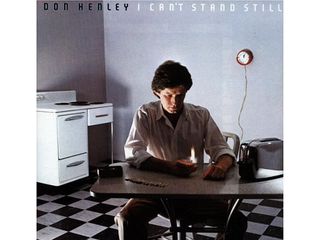
Don Henley - I Can't Stand Still (1982)
“I’m on a few things on this record, not everything. The one song I loved was Lilah, which was an instrumental thing, a really pretty track. I started playing this real melodic line, kind of dark – I was using my Les Paul – and it was very lovely, but there were no words. It was just chords.
“Then Don came in, and he’d written down an incredible melody. It was really beautiful. That stunned me. I mean, I was always in awe of him anyway for his amazing voice, but when he came in with that, I was floored.
“Dirty Laundry was all Kootch. Danny and he were working like geniuses. Danny set him on a path where he could put down the social commentary. Pretty amazing stuff.”
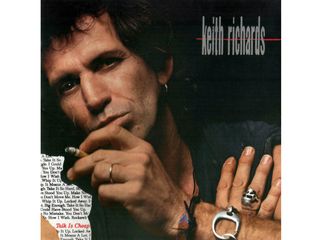
Keith Richards - Talk Is Cheap (1988)
“I entered into Keith’s orbit when he was in L.A. working on Hail! Hail! Rock ‘N’ Roll, the Chuck Berry movie. I got a call from somebody who said, ‘I represent Keith Richards, and he’s looking for you. ‘He’s looking for me?’ I said. ‘Well, why don’t you give him my number – you found me!’
“He told me to call Keith at Larrabee Studios. I got him on the phone and he said, ‘Waddy! How are you? Listen, I’m putting a band together, and you’re in it.’ I said, ‘Well, OK. There goes the audition process.’ Keith was like, ‘No audition. You’re in.’
“Working with Keith’s guitar style was interesting. Because of the way I approach things, I’m looking for those holes. That’s what Danny Kortchmar and I would do: Find where the other guy isn’t, and that’s where you have to be. With Keith, if he’s playing a trebly sound, I’ll use my Les Paul; if he’s doing a big, fat rhythm sound, I’ll play my Strat. We locked very quickly, in fact. It was very easy for me to find the right spots.
“We were all amazed at how it came together. We barely rehearsed before we went to Canada. The only song I knew was Take It So Hard, and that’s because it was the one that was the most finished. We didn’t even rehearse before we started working on the record. With the song Struggle, there’s the part where there’s a drum break, and I remember looking around and nobody knew what to do – we hadn’t rehearsed it. Steve Jordan did his bit on the drums, and I thought, ‘If somebody doesn’t do something here, it’s going to come to a halt.’ So I did a walk-down bit that was completely improvised. I went for it. It was like that – very loose but totally remarkable.”
“The level of musicianship in that band was astonishing. Keith, Steve Jordan, Charley Drayton, Bobby Keys, and then you add Ivan Neville – the match was so great. Positively the best band any of us has ever been in."
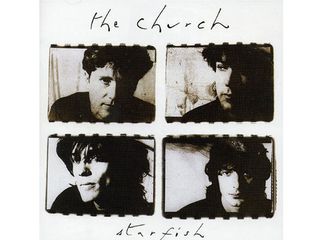
The Church - Starfish (1988)
“My late friend and partner, Greg Ladanyi, was working on lots of different projects, and when this one landed in his lap he asked me if I would do it. They were basically a guitar band, but they were guys who were not very cooperative and who needed a lot of work. I sat with them for a couple of months, having them play things over and over till I was sure they were ready.
“But the wildest thing was, Steve Kilby had this idea called Under The Milky Way, and every day they’d go off and work on it until it was a track. Finally, he brought it in. I heard it and said, ‘OK, that’s cool.’ We put drums on it and some guitars, Steve sang on it – I think I have three different drummers on there – and it came down to this mix where there were so many faders on it, all this synth-y stuff, and so I just started filleting everything.
“Suddenly, the song became this beautiful piece of music, and our tracking of it and the delivery was effective. It really worked. It was captivating, haunting. It didn’t sound like anything else on the record, though, which was probably the problem. People thought that the rest of the record was going to be like the single, and it wasn’t. Milky Way was a total departure for the band, but that track sure worked. It was a huge smash.”
“A funny story about The Church: I was working on a record with Ringo Starr, and he asked, ‘So what have you been up to? What are you doing?’ And I told him that I was working with a band called The Church. He asked me if they were any good, and I said, ‘Yeah, they’re good. But you know how it is with these bands who had a modicum of success elsewhere. They come to America, and forgive me for putting it this way, but they think they’re the fuckin’ Beatles!’ Ringo cracked up and said, ‘I know exactly what you mean!’ That was great.”
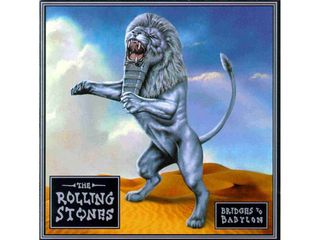
The Rolling Stones - Bridges To Babylon (1997)
“It’s strange to find yourself in the studio with the Stones, that’s for sure. Woody wasn’t in town yet, so Keith called me up and said, ‘Why don’t you come down and play?’ I had met the guys before, and Don Was the producer – I knew him. Keith wanted somebody to play off of him. It was great – every night was a shared musical experience. I kept being invited back.
“They had every room at Ocean Way booked; there was something happening all the time. Tracking, editing, mixing – every room had some kind of activity. We’d get there at seven at night and wouldn’t leave till five or seven the next morning. It went on for a month and a half. So many great sessions went down.
“On interesting story about this record: Don Was came to me and said that he wanted me to play lead on a song called Has Anybody Seen My Baby? I said, ‘Really?’ And he said, ‘Yeah, it’s Mick’s tune, and Keith doesn’t want to play on it, but if you play on it, I know he will.’ So I said, ‘OK.’
“So we’re setting up, and I’m listening to it with Mick and Don, and every time this one spot came up, something sounded wrong to me. Mick went out, and I looked at Don and said, ‘Somebody is playing something wrong in this spot. Listen.’ So we started isolating the parts, and it came down to Mick was the one who was playing it wrong. Don was like, ‘Waddy, you gotta tell him.’ I said, ‘Me? I’m not producing this!’
“But he asked me and asked me, and so finally I went out and said, ‘Mick, isn’t the chorus supposed to go like this?’ I played it for him, and he said, ‘Yeah, that’s right.’ I said, ‘Well, you’re playing it wrong.’ He was like, ‘What?! What the fuck!’ We go to the lounge and he pulls out his notebook, and he’s got chord symbols for himself written on the page. ‘See?’ he says. ‘It’s right there.’ And I said, ‘Yeah, it’s right on the page, but you’re not playing it right.’ And he went, ‘Fuck!’ So he went back in and replayed his part.
“I'm always amazed at how diligent both Mick and Keith are about every piece of music they work on.”

Joe is a freelance journalist who has, over the past few decades, interviewed hundreds of guitarists for Guitar World, Guitar Player, MusicRadar and Classic Rock. He is also a former editor of Guitar World, contributing writer for Guitar Aficionado and VP of A&R for Island Records. He’s an enthusiastic guitarist, but he’s nowhere near the likes of the people he interviews. Surprisingly, his skills are more suited to the drums. If you need a drummer for your Beatles tribute band, look him up.
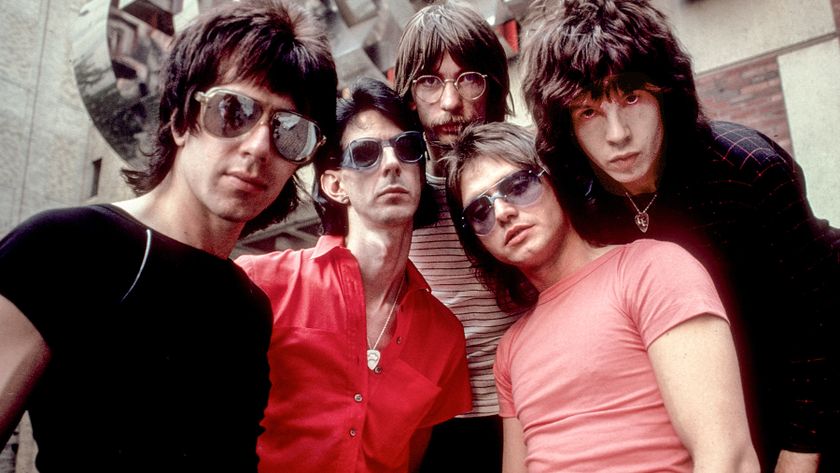
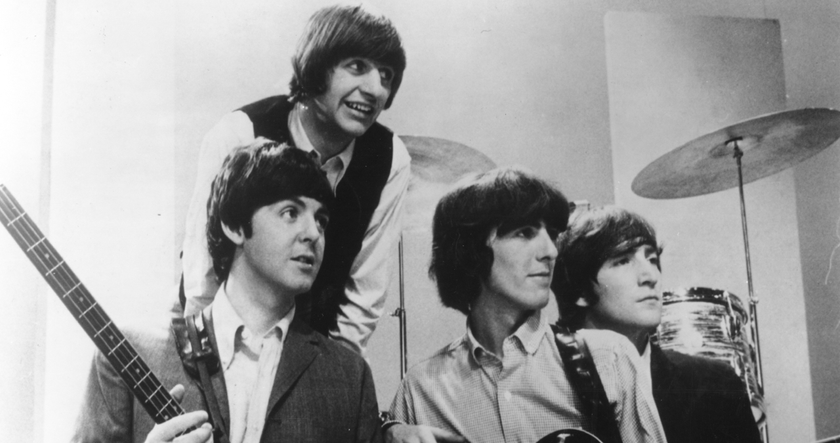
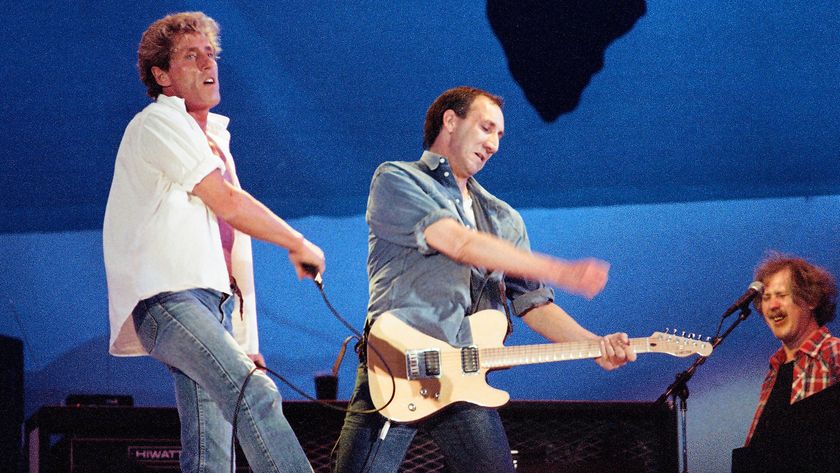
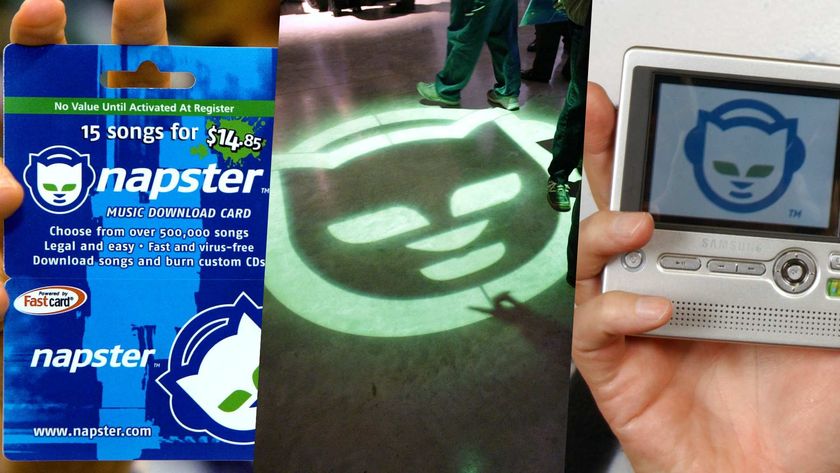
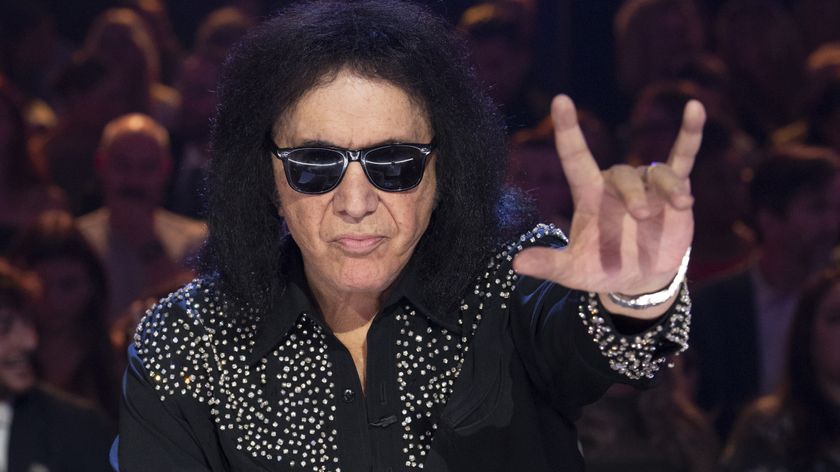



![Justin Hawkins [left] of the Darkness plays an open G on his offset electric and closes his eyes as he performs onstage; soul-reggae icon Johnny Nash [right] frets a chord on his acoustic and wears a patched denim jacket.](https://cdn.mos.cms.futurecdn.net/hWzCjD9ZWQiPPjMtTWiFfa-840-80.jpg)
